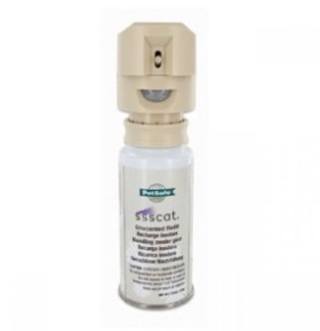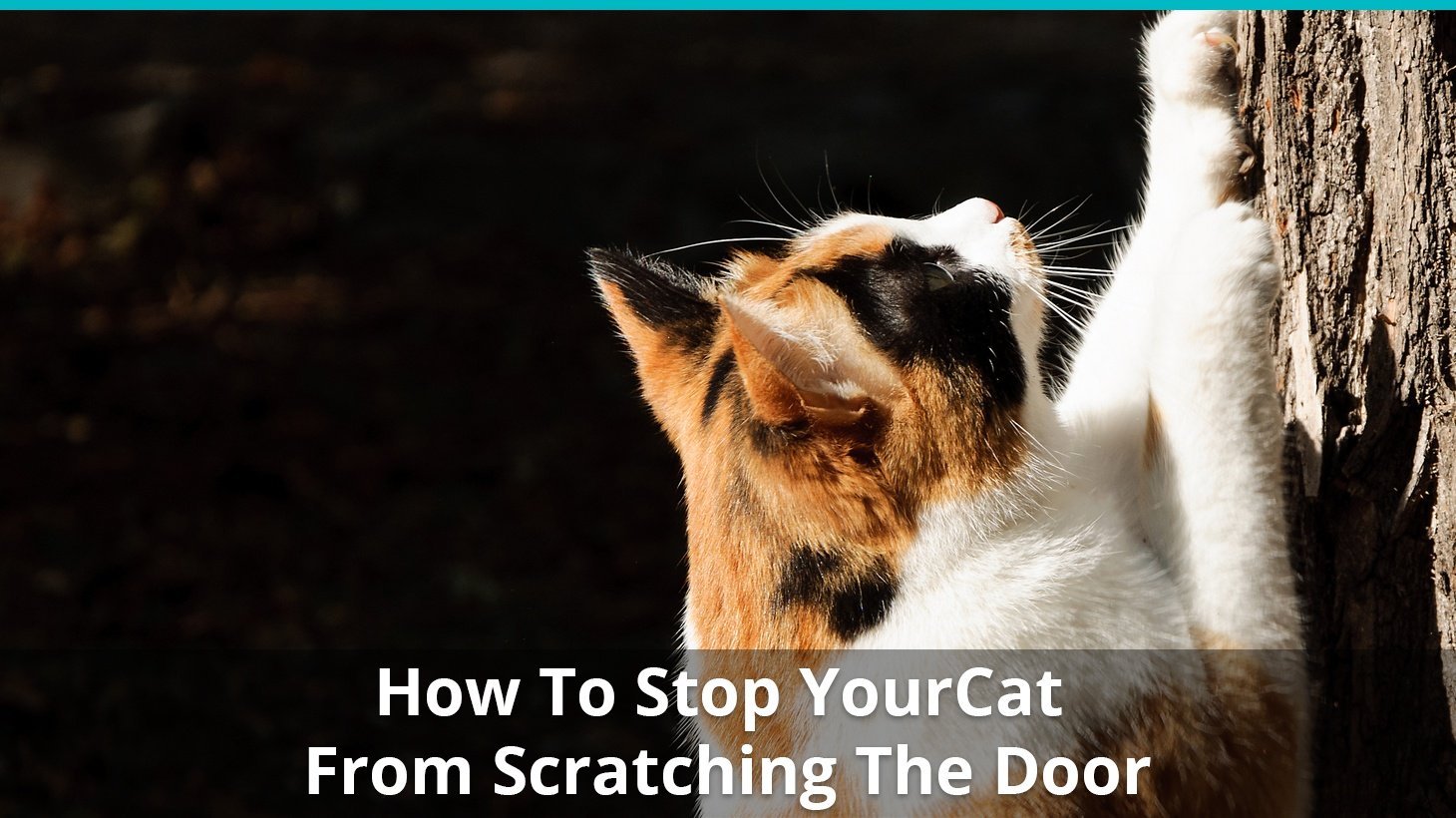Scratching the furniture is one thing, but why is your cat clawing the door?
Is he using it as a scratching post? Is he trying to get inside or outside? What’s his problem with the entrance, the bedroom, or the living room’s door? How do you prevent your cat from scratching it?
It’s quite simple. Your feline pal is trying to get your attention.
Whether it’s in the middle of the night while you’re trying to sleep, or when you’ve left him home alone to go to work or run some errands, your cat wants yout to notice him. Your cat may be hungry or wants you to pet him or play with him
As fascinating as felines are, all they really want is food, satisfactory playtime, and somebody to love them.
So how do you stop your cat from scratching the door?
There are a few ways and most of them include various methods of discouragement.
Don’t Pay Attention To The Scratching
Since attention is what your feline furball is seeking, you will need to start ignoring its attempts to claw its way into the door.
Positive cat training practices won’t do the trick as you’ll need to stay away from all types of positive reinforcement. You’ll also need to forget about the negative techniques. If you’re scolding and punishing your cat or yelling at him, he will still be getting some attention from you.
This will make your kitty think that the scratching is doing the trick, and he will keep scratching to get what he wants.
If you’re trying to prevent your cat from further scratching by giving him food or treats, he will also start doing it more often because he will associate the scratching with a rewarding experience.
Play With And Feed Kitty Before Bedtime
If ignoring isn’t working, you’ll need to switch the feeding schedule. If you play with your pet each time before you feed him, he will feel hungrier and less energetic. As a result, he will feel the need to take a nap after each meal.
Switch your kitty’s feeding regime and schedule lengthy play sessions before meals. Give your cat his last meal just before you go to bed.
Your furball will need a nap after he eats and he won’t have the energy to claw at your door all night long. It’s a simple but effective trick.
Our review process is unbiased and based on extensive research. If you buy through the links on our site, we may earn a commission.
Make The Door Less Appealing
Discourage your kitty’s destructive clawing by making the doors in your home less appealing. Here’s one way to do that:
PetSafe’s Ssscat Cat Deterrent

You can make the doors at your house or apartment less appealing to your feline pet with PetSafe’s cat deterrent “sssCat” spray.
This product resembles your typical automatic air freshener spray system. However, it’s much more effective for cat training and it’s also completely harmless to your kitty.
The cat deterrent spray is motion-activated and covers a distance of up to 3 feet. All you need to do is place it in front of any door which your kitty likes and let it do its magic. It will activate itself when it detects the feline’s movement and will release an odorless burst of air that will repel your pet.
The unpleasant feeling of the sudden air burst will keep the cat away each time it tries to scratch the door and your pet will eventually learn that approaching the door isn’t in its best interest.
The product is affordable, effective, and easily replaced with a refill.
>> Click here to read more reviews and see today’s best price on Chewy.com <<
You can also use double-sided tape for your doors. Cats hate the sticky feeling and they’ll easily be discouraged from clawing anything sticky. Furniture strips can also do the trick as they can be placed on any type of surface – from soft fabrics to wooden countertops.
Of course, your pet may simply be scratching the door out of the need to exercise and maintain his nails. Keeping your cat’s nails in good condition is an essential part of the mandatory grooming process.
Buying several scratching posts and making your home cat-friendly with lots of cat toys, scratchers, and cat trees will guarantee that your feline furball will be well-entertained and less tempted to claw the doors.
Whichever method you decide to choose, don’t ever opt for declawing your cat.
It will affect the kitty in negative psychological ways and the physical pain will last even after the surgery. Your pet’s health and well-being should always be your priority, so choose wisely.


Very awesome tutorial thank you guys surely I will try these guidelines !
My cat wanted to go on my back porch and I put him on the window sill so he could still watch the birds
I tried 3 cans of Ssscat. At first he was really scared of it and would run away and we wouldn’t see hide nor hair of him. Then he got used to it and it doesn’t go off every time and he has figured it out. Last night for instance the machine is empty so I stood there after opening the door and sprayed air fresher beside it. He ran away at first and then kept on coming back. It got to the point that I got fed up with it and thought that at least one of us should sleep. So I left the bedroom and came downstairs and slept in my lazy boy chair with him in my lap. He was quite happy then. I have even tried refilling the cans as the refills are $13.99 each. It will only half fill them. Have also tried throwing water on him. He doesn’t seem to mind this.
I guess we have a lot more sleepless nights ahead.
A friend of mine recommended sticking bubble wrap to the door, she said that she tried this with her own cats and they won’t go near it. Is this something that you would recommend?
Hey Carinthea –
Great idea! You could certainly try that if you don’t mind having the bubble wrap up.
The only thing I can think of that you’d need to watch out for is to make sure she doesn’t like to lick/chew the plastic bubble wrap. Some cats love to lick plastic, and of course there’s a small chance she may ingest some by accident.
Otherwise, this could work!
Thanks,
Curt
THANK YOU! Double sided tape worked great. I took a piece of cardboard the width of the hallway in front of the door and covered it in package tape. Not double sided but if you start it and flip over and put on backwards it works great. Up at 2:00 am when i read the idea in this post so had to make due with what we had, desperate for sleep! Not even one try to scratch the door! This after trying everything else like water bottles, air, etc.